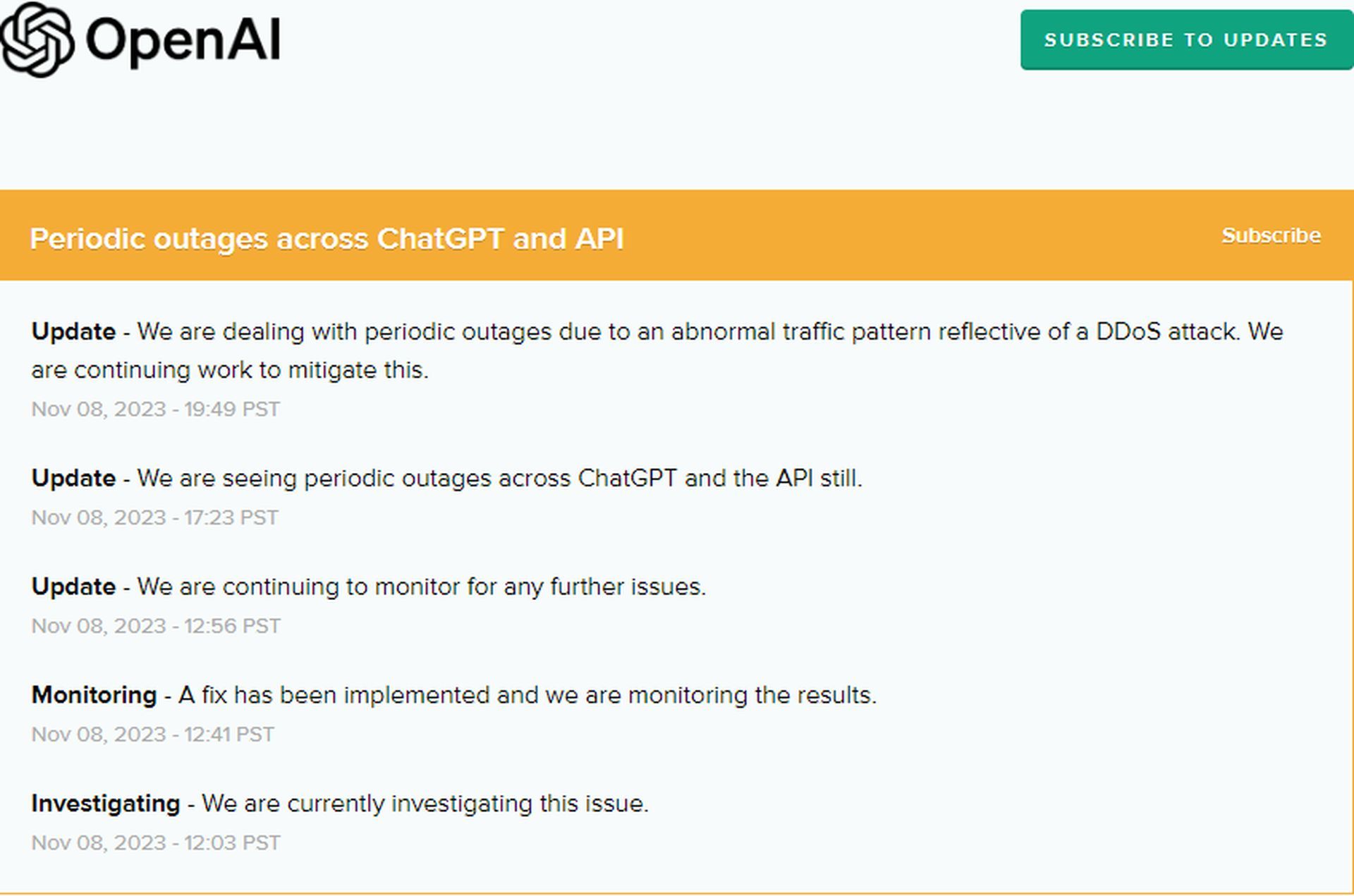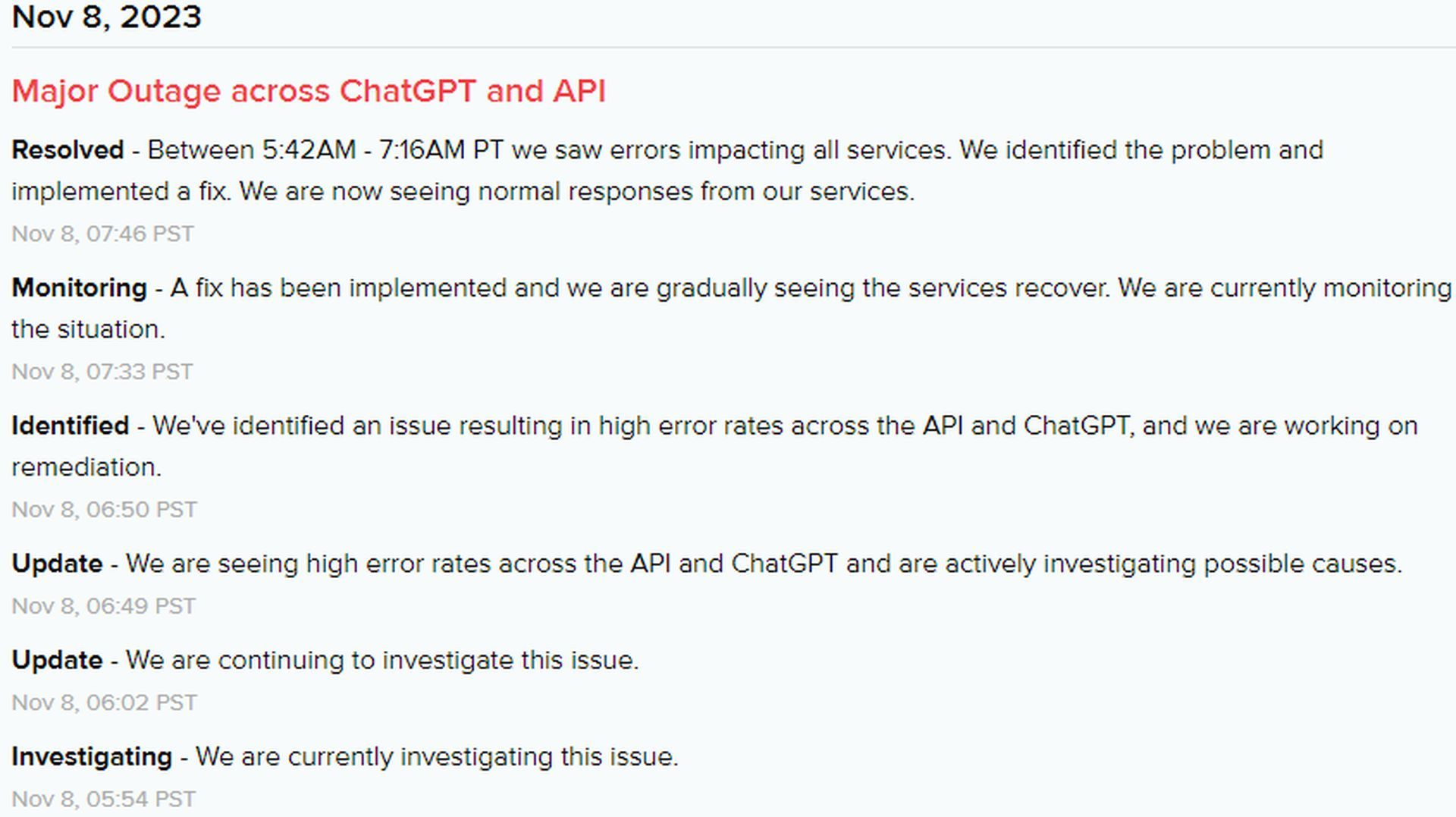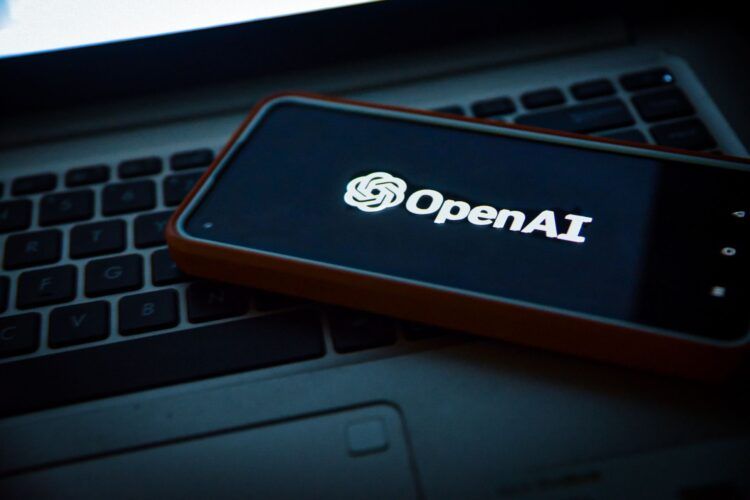Yesterday, OpenAI, a pioneering force in the realm of generative AI, grappled with a series of disruptions that caused a persistent ChatGPT outage. The company has attributed these outages to an unprecedented surge in “abnormal traffic,” pointing toward a potential Distributed Denial of Service (DDoS) attack, a tactic employed by malicious actors to overwhelm a platform through a barrage of repeated pings.
Responding to the situation, OpenAI issued a statement acknowledging the ongoing challenges
We are dealing with periodic outages due to an abnormal traffic pattern reflective of a DDoS attack. We are continuing work to mitigate this.
While the company’s representatives were not immediately available for comment after normal hours, they have been actively engaged in addressing the issue and restoring seamless service.

The impact of the ChatGPT outage
ChatGPT, introduced to the public just a year ago, sparked a global fascination with artificial intelligence. Presently, approximately 100 million users engage with ChatGPT on a weekly basis, and over 90% of Fortune 500 companies are actively developing tools on OpenAI’s platform.
As of November 9, 2023, OpenAI has successfully addressed the issue, reinstating normal functionality to ChatGPT and its API. The resolution was implemented shortly after 10 a.m. ET, as reported on status.openai.com.
Both OpenAI’s status monitoring site and Down Detector reported the major ChatGPT outages. OpenAI has assured its user base that they were actively investigating the incident and implementing measures to prevent future disruptions.

This development comes in the wake of what OpenAI described as a “major outage” affecting not only its flagship chatbot but also the essential tools that developers rely on to harness its AI capabilities. Although the company has reported that the issue has been resolved, it did lead to an unusual spike in error rates across its software and AI platform during the disruption.
OpenAI, bolstered by the backing of tech titan Microsoft, recently unveiled a preview version of GPT-4 Turbo, an enhanced iteration of their cutting-edge language model. This new release promises even greater power and speed, reaffirming OpenAI’s leading position in the dynamic field of AI technology.
While OpenAI basks in its prominent status in the AI landscape, it does not exist in isolation. The company faces stiff competition from well-funded startups, industry behemoths, and even its early supporter, Elon Musk. This incident serves as a stark reminder of the challenges involved in maintaining the availability and integrity of AI services in an ever-connected digital landscape.

In a separate incident earlier this week, there were reports of issues with ChatGPT’s ability to generate DALL-E 3 images, though it remains unclear if this was related to the subsequent ChatGPT outage. OpenAI’s spokesperson had initially stated that all systems were operating at full capacity. This week also witnessed OpenAI’s inaugural developer conference, featuring updates to ChatGPT, including the integration of DALL-E 3, an update to its knowledge cutoff date, and the deployment of GPT-4 Turbo to ChatGPT Plus users, signaling a new era of AI capabilities for users to explore and exploit.
Meanwhile, one of the most significant introductions of OpenAI’s dev day were Custom GPTs, GPTstore, and GPT builder, which are preparing to reshape and highly democratize the entire landscape of artificial intelligence.
Featured image credit: Levart_Photographer on Unsplash





